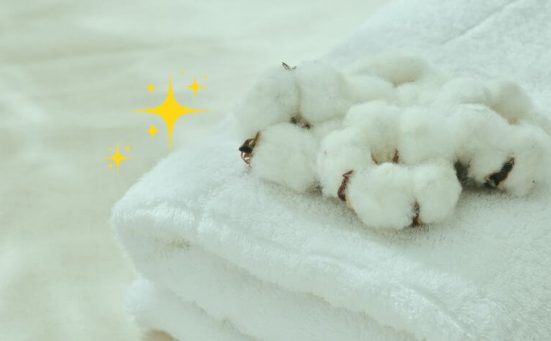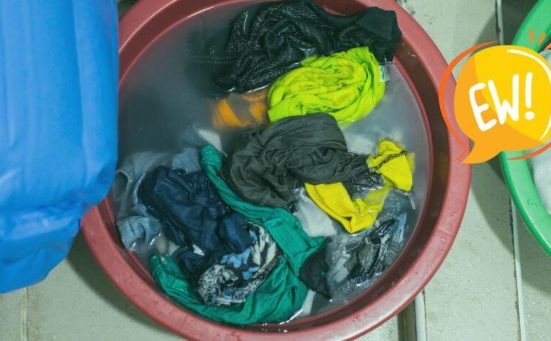
How To Make T Shirts Softer
Nothing feels more comfortable than a soft T-shirt against your skin. But sometimes, T-shirts feel anything but soft. They can feel scratchy, boxy and too harsh.
In this article we’ll share the secret to returning your favourite T-shirts to their most soft and comfortable feeling best.
Why Do Cotton T Shirts Lose Their Softness?
Before it becomes a T-shirt, the cotton fibres have to be put through 4 processes which are
- Carding
The process of carding teases the cotton fibres into finer strands. As this is a labour intensive and therefore expensive process, it is often omitted. - Combing
This process softens the rough cotton fibres and works in a similar way to brushing your hair. The cotton fibres are essentially straightened out and smoothed and any impurities are removed. If this process isn’t completed enough times, the cotton will remain rough. - Blending
The cotton is then blended with other materials like rayon or polyester. - Dyeing
To create the many different colours and designs of modern T-shirts, the material needs to be dyed. The dyes are not always made from natural sources, sometimes harsh chemicals are used to create the dyes which can cause the material to feel rough and stiff.
If any one of these stages isn’t completed perfectly, there’s a good chance that your T-shirt will feel rough and scratchy. Of course other materials will always feel softer than cotton because they are designed to. But if you prefer the natural feel of cotton against your skin, it doesn’t mean you have to suffer harsh, scratchy material.
Just follow our simple guides to return your cotton T-shirts to their soft, just bought feel again.
How To Soften The Feel Of Your Cotton T Shirts
There are a number of ways to reduce this feeling of stiffness in your T-shirts and get them feeling soft and comfortable again without using fabric softener. Sometimes it might take 2 or even 3 goes at using these methods to get the desired results but it is worth persevering.
Please keep in mind that these methods may not work for all fabrics and some may cause discoloration or damage to the t shirt. It’s always best to test a small area of the t shirt before applying any of these methods to check for any negative effects.
Using Vinegar and Baking Soda To Soften Your T Shirts
This is a simple method to soften your cotton T-shirts and uses just 2 common household ingredients. All you need to do is place 1 teaspoon of baking soda in a large bowl and slowly pour in 1 cup of white vinegar.
The vinegar has to be added slowly as the reaction caused by mixing these 2 ingredients results in a bubbling solution. Once it stops bubbling, stir with a spoon to remove any clumps of undissolved baking soda. Add this mixture to the washing machine and wash your T-shirts in the usual way.
Using Salt To Soften Your T Shirts
For this method you’ll need to pour 1 cup of salt into a large pot filled with water. Stir until the salt is dissolved, then place the pot on the hob and bring the solution to the boil. Wet the T-shirt and gently add it to the pan and reduce the heat and let the pan simmer on a low heat for around 30 minutes.
Once the shirt has been simmering for 30 to 40 minutes, remove from the heat, rinse the shirt to remove any excess salt and wash in the normal way in your washing machine.
Using Aloe Vera To Soften T Shirts
Aloe vera gel contains compounds that can help moisturise and nourish the fibres of the fabric – making it feel softer and more supple.
All you need to do to use aloe vera is mix ¼ cup of aloe vera gel with ¼ cup of water to create the solution. Then add it to the rinse cycle of your washing machine.
You can also add it directly to the final rinse of a hand wash. Letting the T- shirt soak in the solution for a few minutes before washing can also help to soften it.
It’s important to note that some aloe vera gels can contain alcohol or other ingredients that may not be suitable for certain fabrics.
Using A Pumice Stone To Soften Your T Shirts
Simply rub a pumice stone all over the T-shirt making sure to include the hemline and the sleeves. Then soak the T-shirt in a fabric softener and water solution overnight. The following morning run the T-shirt through a normal wash in the washing machine.
Using A Tumble Dryer To Soften Your T Shirts
We all know that the best way to dry our clothes is in the fresh air on a washing line. However, this can leave T-shirts feeling harsh and scratchy. The tumbling motion in a tumble dryer helps to soften the fabric again.
We recommend drying the T-shirts to around 70% dryness and then transferring them to your tumble dryer along with some laundry balls. Set the dryer to low and turn it on. The T-shirts will come out dry and soft.
Using Sandpaper To Soften Your T Shirts
This might sound a bit odd, but it works well especially on T-shirts with a printed design. Rub the sandpaper all over the hemline, sleeves and neckline but don’t rub the printed design of the shirt. Then wash the T-shirt on the usual setting in your washing machine and dry in the usual way.
This method can also be used by substituting the sandpaper for scouring pads. The results will be the same.
Using Epsom Salts To Soften Your T Shirts
Add 1 tablespoon of epsom salts to your wash load and wash in the usual way. This naturally occurring ingredient will soften your T-shirts without harming the environment.
Frequently Asked Questions
Vinegar can be used to soften your shirts, it should be used in place of a fabric softener.
There are several natural fabric softeners; Salt water, aloe vera, epsom salts, vinegar and baking soda all work well for softening clothes.
Vinegar will soften your clothes just as well as a fabric softener. But as vinegar doesn’t contain any harsh chemicals it is better than a fabric softener.
You can use hair conditioner as a fabric softener and it usually works out a cheaper option.
Also, follow us on Pinterest ...



